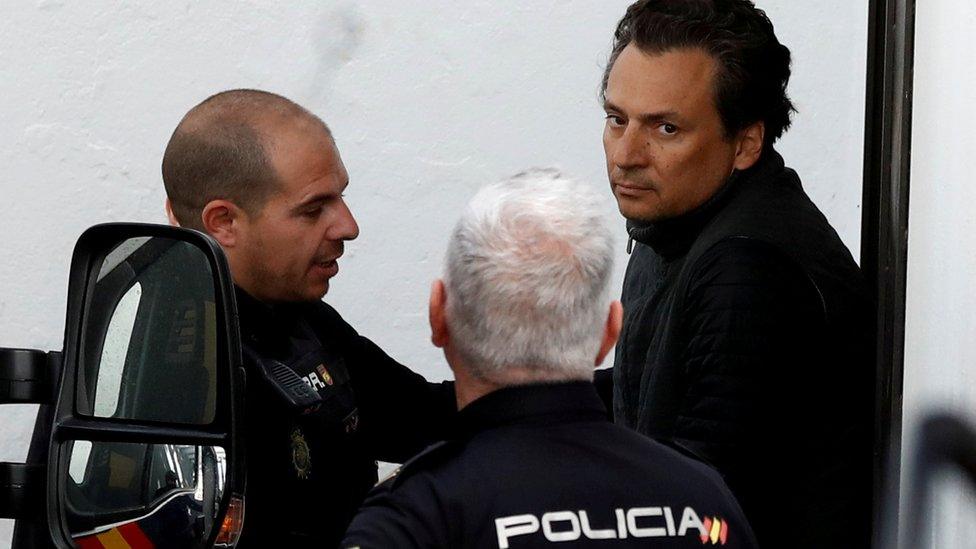Emilio Lozoya: Former Mexican oil boss leaves Spain to face charges
- Published

Emilio Lozoya (R), seen here in Spain in February, has agreed to co-operate
The former boss of Mexican state oil company Pemex has been extradited from Spain to face corruption charges back home in Mexico, police say.
Emilio Lozoya is accused of taking $10m (£8m) in bribes from a Brazilian construction firm that has admitted paying off Latin American politicians.
Mr Lozoya denies any wrongdoing and has agreed to co-operate with the inquiry.
Spanish police said he boarded a plane that left Madrid-Barajas airport at 17:57 (15:57 GMT) on Thursday.
The aircraft was heading for Mexico with a scheduled stop in Canada, officials said.
Mexico's President Andrés Manuel Lopez Obrador said Mr Lozoya's extradition from Spain marked a significant step towards defeating corruption in his country.
"This voluntary extradition is going to do a lot to help purify public life, to clean up corruption," he told a news conference on Thursday.
Mr Lopez Obrador said it was important to dig out as much information as possible and expose corrupt officials in order to prevent them from returning to power.
Mr Lozoya, who was chief executive of Pemex until four years ago, fled to Spain after being accused of receiving substantial bribes from construction company Odebrecht.
The 45-year-old was arrested in southern Spain in February.
Founded in the 1940s, Odebrecht was for a while one of Brazil's most competitive construction companies, winning contracts not just in Latin America but also in the Middle East and Africa.
It won numerous awards and was voted one of the best employers in Brazil.
But in 2015 the arrest of its chief executive, Marcelo Odebrecht, shattered the firm's image.
Initially he denied all accusations of corrupt links to politicians, but two years later a plea bargain deal saw him come forward with allegations that are still rocking Latin American politics.
Mr Lozoya was also one of the closest advisers to former President Enrique Pena Nieto, who is not implicated in the scandal.
- Published6 July 2019
- Published18 April 2019
- Published22 April 2018